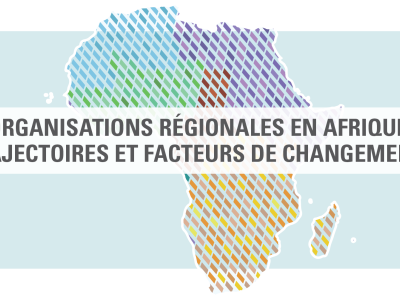
The elusive win-win balance in mining – Part 1: ‘A very complex puzzle…’
Mining companies, African governments and civil society organisations seem to live in parallel worlds that rarely meet.
When they do, as in African Mining Indaba last week, it is mostly in the margins, and what is said often seems lost in translation.
They will all be worse off by missing out the big picture, which is that the extractive sector should play a pivotal role in the industrialisation and economic transformation of Africa for more inclusive and sustainable growth.
This was confirmed once more at the 20th annual Investing in Africa Mining Indaba gathering of mining stakeholders - an annual ritual where mining companies and related businesses meet. It brought over 7000 participants from around the world, including ECDPM lead expert on extractives Isabelle Ramdoo and myself, to Cape Town from 3-6 February 2014.
Official presentations and panels, though often highly instructive, seemed to be more of a PR opportunity to shine and impress. (Most of the real activity appeared to be happening in the exhibition hall, in side meeting rooms and corners, where business was conducted. Which is the attraction of the event)
For this reason, though, many other stakeholders in mining joined to talk [to] business; primarily ministers and officials from resource-rich countries, in an effort to promote their country. Other stakeholders included some partner countries, key institutional actors (such as the African Union, the African Development Bank, the World Bank/IFC, and the instrumental United Nations Economic Commission for Africa), experts, civil society and the media. Europe was notably absent.
Public discourse at the event can be summarised as follows:
Difficult Times
Mining companies are facing difficult times as the commodity boom super-cycle is allegedly coming to an end (though there are huge disparities among mineral products and sectors). Thanks to their sound and efficient management and top quality operating systems however, mining companies are now successful in efficient production and achieving sustainable profits, to the satisfaction of their shareholders as well as the local and national governments (notably tax revenues authorities) in the countries they operate in. They have responsible world-class operations, abiding to the highest standards, in cooperation with local communities and government to contribute to sustainable development. In reality, the picture is not as rosy, but no business will present itself as a bad investment. What companies need most from government is a stable and transparent regulatory environment, with a reasonable level of taxes and an open market, away from resource nationalism, their biggest fear. The main challenge in their relations with government and local communities is to manage (i.e. downplay) expectations.
Reality Checks
Resource-rich African countries all presented themselves as providing vast opportunities for exploration and extraction of mining products, with a transparent and very conducive regulatory environment to attract investment and booming infrastructure development. There too, a reality check would be valuable, and would hopefully turn into a wake up call for some overoptimistic ministers.
CSOs
Civil society representatives stressed the imperative for sustainable development in mining, focusing mainly on local communities, generally blaming mining companies for not doing enough, including in terms of engaging in genuine dialogue and partnership with local actors.
In terms of development outcomes, in spite of companies’ efforts and good will, business realities will always fail to meet the aspirations and expectations of local and national actors, who want a more equitable share of resource revenues and more inclusive and sustainable development. In spite of good intentions, this often turns into a dialogue of the deaf. As my next-seat neighbour summed it up in her notes at the end of a long debate on sustainable mining: “a very complex puzzle”…
Read part 2 on what really happens in the margins of the meeting here.
The views expressed here are those of the authors, and may not necessarily represent those of ECDPM.



